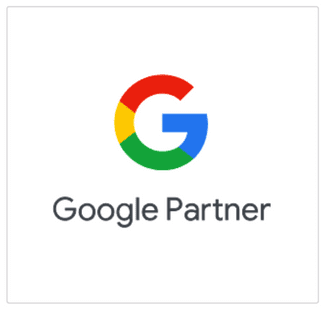In an ever-evolving digital world, entrepreneurs face an essential challenge: how to increase their online presence and bring their business to the attention of the desired audience. SEO (Search Engine Optimization) is a magic key to this challenge. But what does SEO mean for entrepreneurs? How can SEO influence your business?
If you’re wondering what SEO means, what a URL and a link are or how you can optimise your website for search engines, you’ve come to the right place. This blog article will explore these concepts in detail and provide essential information about SEO marketing and consulting.
What is SEO?
If you’re wondering what SEO stands for, it’s an acronym for Search Engine Optimization, which essentially means the process of optimizing a website to attract organic and unpaid traffic from the search engine results page. Simply put, SEO involves making changes to the design and content of your website to make it more attractive and easier for search engines to understand. Ultimately, the main objective is to ensure that your website is displayed in the top positions in search results when people search for relevant keywords.
If you’re wondering “Why is it so important to understand and apply SEO?” The answer is simple: every website needs traffic. Traffic is the equivalent of visitors, and they can become customers or consumers of your products or services. Therefore, it is crucial that search engines, especially Google, display your website in the top positions of search results when people enter certain keywords or phrases relevant to your business.
Although the process of SEO optimization may seem complex when taking into account all the factors that influence rankings, it is essentially about making your website as appealing and accessible to search engines as possible, so that it is considered a suitable answer to users’ queries. So SEO is a set of techniques and strategies designed to bring your website to the forefront of online attention and help you attract more potential customers to your business.
What does URL mean?
To better understand how SEO works and how URLs and links can influence the visibility of your website, it is important to focus on two key concepts: URL and link.
URL (Uniform Resource Locator) – The unique address of a web page.
A URL is essentially the unique address that identifies and locates a web page on the internet. Think of a URL as the physical address of a building – in this case, the building is the web page. It consists of several elements, such as the protocol (e.g., “http” or “https”), the domain name (e.g., “www.example.com”), and the path to the specific resource on the server (e.g., “/page-about-us”). The URL serves as a guide for search engines, helping them to index and display your site’s content correctly when users search online.
What does link mean?
On the other hand, a link is a hypertext connection linking two or more web pages or resources. Links are the key elements that facilitate web browsing. When you click on a link, you are directed to another web page or another part of the same page. These can be text, images or other elements visible on websites. Links not only help users to navigate, they are also of significant importance in terms of SEO.
How do these concepts relate to SEO?
URLs are important in SEO because they provide search engines with information about the structure and organisation of your website. A clear and consistent URL structure can make your website easier for search engines to index and understand, which can improve your ranking in search results.
Links, on the other hand, have a considerable influence on how search engines evaluate and rank the importance of your content. Links from other websites to your content (backlinks) can increase the authority and credibility of your pages, which can contribute to a higher ranking in search results. Also, internal links, which connect different pages of the same website, help distribute authority and relevance within the site.
What is SEO optimization?
SEO is a complex but essential process to achieve outstanding results online. SEO can be divided into several types, each of which has its own methods and strategies. In general, website optimization can be divided into two major categories: on-page optimization and off-page optimization.
On-Page Optimization
On-page optimisation focuses on directly improving the content and structure of the web page to make it more attractive and easier to understand for search engines and users. This includes:
Keywords: Identifying and using keywords relevant to your business in titles, descriptions, headers and page content.
URL structure: Ensuring a clear and relevant URL structure that helps search engines understand your page hierarchy.
Quality content: Providing relevant, unique and high quality content that meets the needs of users.
Image optimization: Resize and compress images to improve load time and tag them appropriately with alt text.
User Experience (UX): Ensuring a pleasant and user-friendly browsing experience for visitors.
Off-Page Optimization
Off-page optimization focuses on factors that are not directly related to page content, but have a significant impact on search engine rankings. This includes:
Quality Backlinks: Getting links to your site from other trusted and relevant sites. The quality and quantity of backlinks can significantly influence rankings.
Reputation and authority: Building a solid online reputation and increasing the authority of your website by participating in online communities and promoting high quality content.
Social networking: Use social media platforms to promote your content and create a strong online presence.
Local optimization: For local businesses, optimizing for local searches is crucial. This includes listing correctly in local directories and collecting positive reviews.
User experience: Ensuring a positive user experience can lead to sharing your content and increasing brand awareness.
Website optimization is a complex effort that combines on-page and off-page optimization to achieve the best search engine results. For entrepreneurs looking to maximize their online presence, understanding and applying these methods is essential for long-term success.
To optimise your website effectively, you can rely on SEO marketing services offered by SEO consultants and agents.
SEO consultancy focuses on providing you with tailored advice and strategies to identify the specific needs of your business and develop an appropriate SEO optimization plan. Consultants work closely with you to understand your business goals and identify the most appropriate keywords, URL structure and content to attract visitors and convert them into customers.
On the other hand, an SEO agency offers comprehensive services to implement and manage SEO strategies. These agencies have SEO experts who handle everything from initial analysis and on-page optimization to backlink building, monitoring and reporting on results. Digital marketing agencies are equipped with the resources and knowledge needed to successfully meet SEO challenges.






